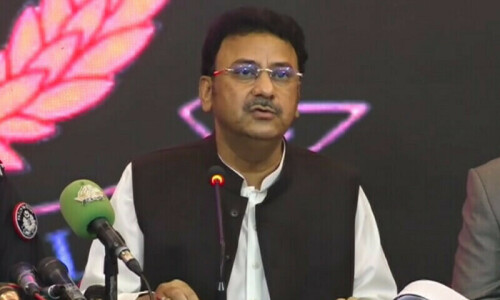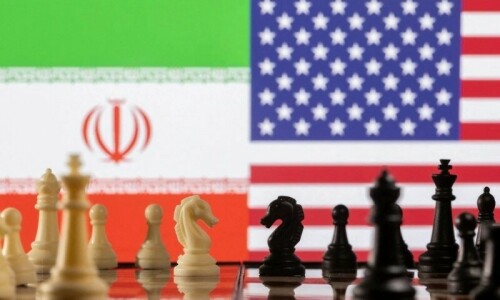THE harrowing news of a young girl who recently committed suicide on account of her failure in the CSS exam points to a deep malaise in society. This mental health crisis we are witnessing today stems from the political and economic realities we live every day. These realities, in turn, are altering society and the human psyche, and exposing individuals to the whims of a precarious labour market.
The job market today is characterised by a surplus pool of labour vying for a handful of jobs. This disequilibrium results in quite literally — “a reserve army of labour” — as Marx predicted. The modern economy, however, has witnessed a significant deviation from Marx’s prediction with this reserve army including not just blue-collared labour — as Marx suggested — but also highly qualified individuals such as engineers, doctors and teachers.
This excess supply of labour carries significant ramifications. As the surplus pool widens and people with higher qualifications enter the market, minimum qualification requirements go up. No longer is a simple degree adequate to secure a position. Instead, the candidate will be judged on research experience, papers published, etc.
This triggers a pernicious process whereby individuals are constantly forced to ‘enhance their value’, either by pursuing higher qualifications or attaining work experience to make them a ‘better fit’ for the market. Thus, individuals are trapped in a perennial cycle of competition and ‘self-improvement’, where they are forced to not only compete against each other but against themselves as well, since they remain unsure which qualification or how much work experience is enough.
Our mental health crisis must be seen in the larger sociopolitical context.
Young individuals live through this cycle of competition every day, with the pressure to outdo others and their own selves constantly impacting their mental health. This competiveness is a product of neoliberalism — the preponderant ideology today. Neoliberalism with its emphasis on the free market, individualism and competition alters the very psyche of individuals and forces us to view each other as competitors and to see the world strictly through an economic lens.
This distortion of the human psyche stems from what political theorist Wendy Brown calls the ‘marketisation’ of human society, in which states and individuals are reduced to mere capital. Hence, all conversations are reduced to economic products and goals, and, like capital, the return they generate. Countries, for instance, are determined by their GDP growth rates and their FDI potential. Academic disciplines are selected based on the economic value and returns they may provide in the future. Individuals pursue degrees and experience to increase their ‘marketability’ in the labour market. Neoliberalism forces us to view the world through this myopic lens, and as Todd McGowan in Capitalism and Desire argues, distorts notions of human satisfaction and contentment.
Neoliberal rationality and its distortion of the human psyche is also predicated on the emphasis neoliberalism lays on individualism. This emphasis places the onus of success and failure on individuals. People must, therefore, not only bear the competition a neoliberal economy perpetuates, but also contend with the very real possibility of unemployment and financial loss this might incur.
People are thus now fully responsible for their fate and in a world riddled with class, gender and racial disparities, that fate is too often risky. This is why we witness individuals striving so hard to secure their futures — a career in the civil service being a prime example — at the expense of their physical and mental health.
Neoliberalism’s emphasis on the individual, moreover, also necessitates that it erode the most common manifestation of collective support: public welfare and social security. Hence, while neoliberalism perpetuates individual responsibility, it concomitantly pushes an agenda for a hollowed-out state where the state provides very little social security such as employment or health insurance.
Here again people are left at the whims of the market. Not only must they now contend with a debilitating sense of competition, they must remain cognisant of the very real fear of unemployment and the lack of state support available. This only further exacerbates social and economic anxieties and contributes to the mental health crisis we are witnessing today.
It is essential that we view this mental health crisis in a larger sociopolitical context, and trace its roots to a pernicious ideology that is triggering inequality and eroding the very social fabric of societies. As we grieve such loss of life, it is high time we moved towards an economic system that promotes equality and human welfare and one that is not predicated on the labour or mental health of the people.
The writer is a civil servant and studied at Cornell University and at the University of Oxford.
Published in Dawn, July 30th, 2021










































